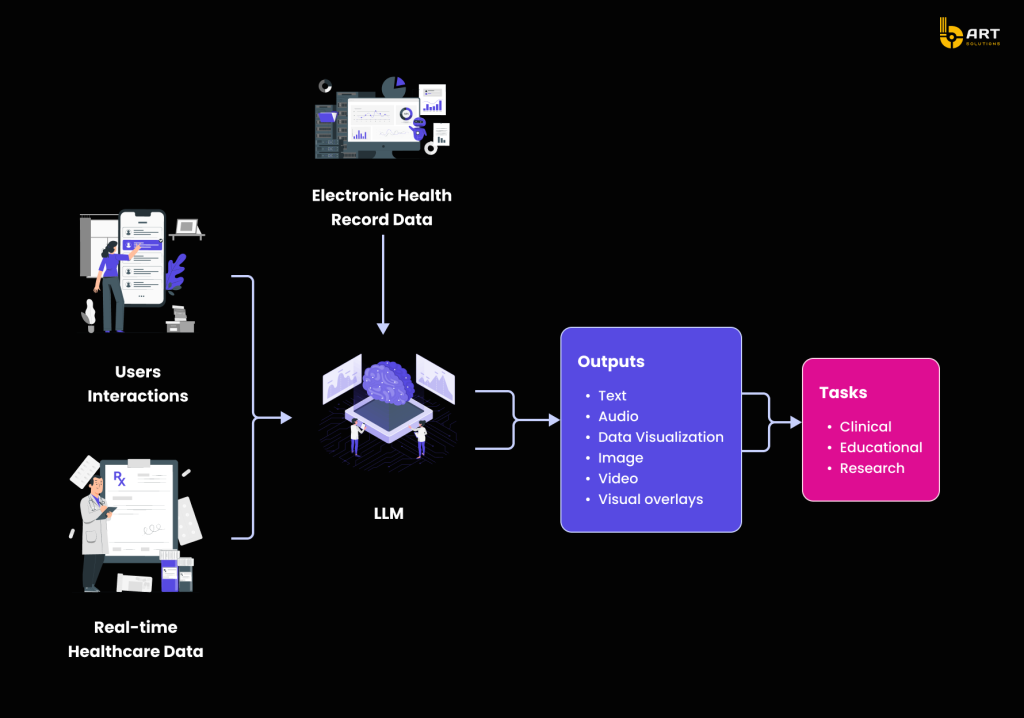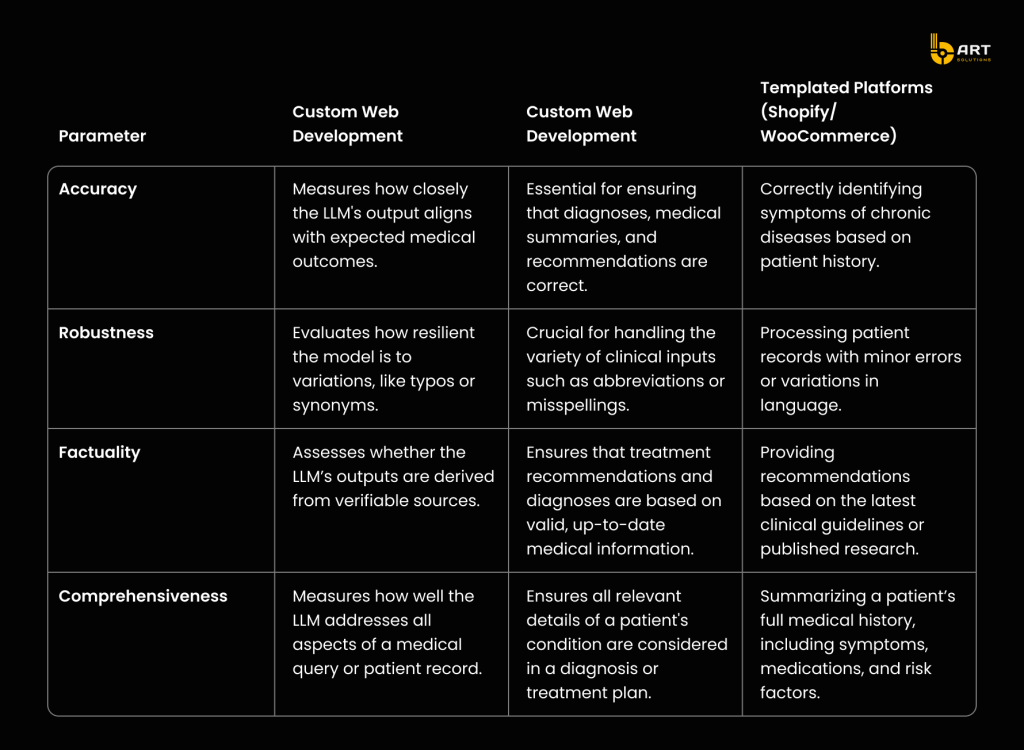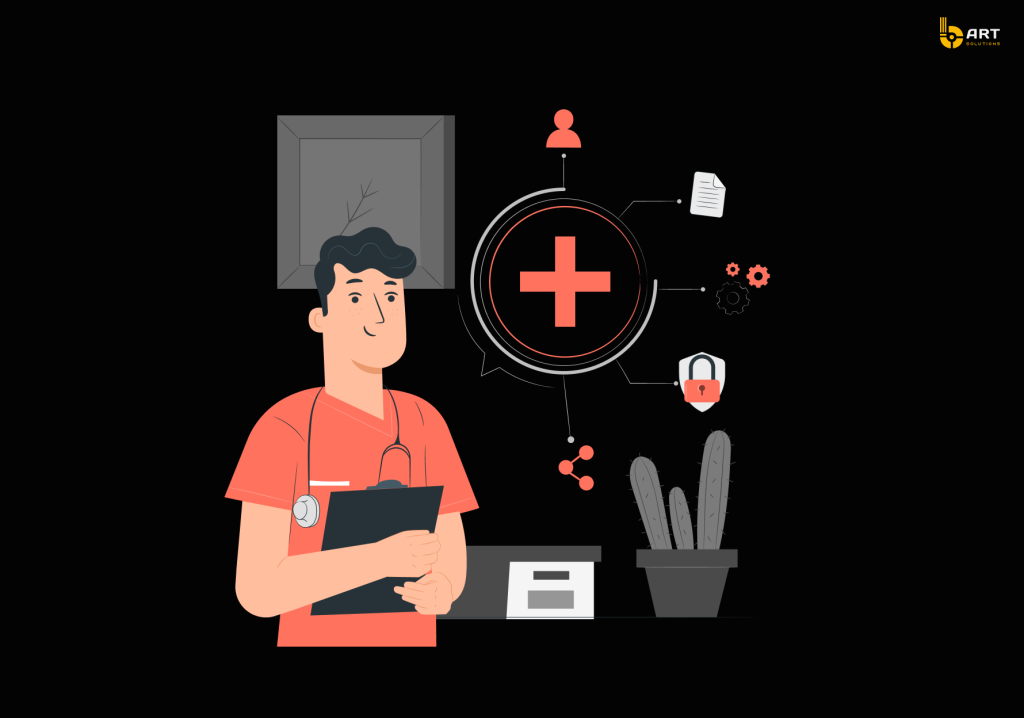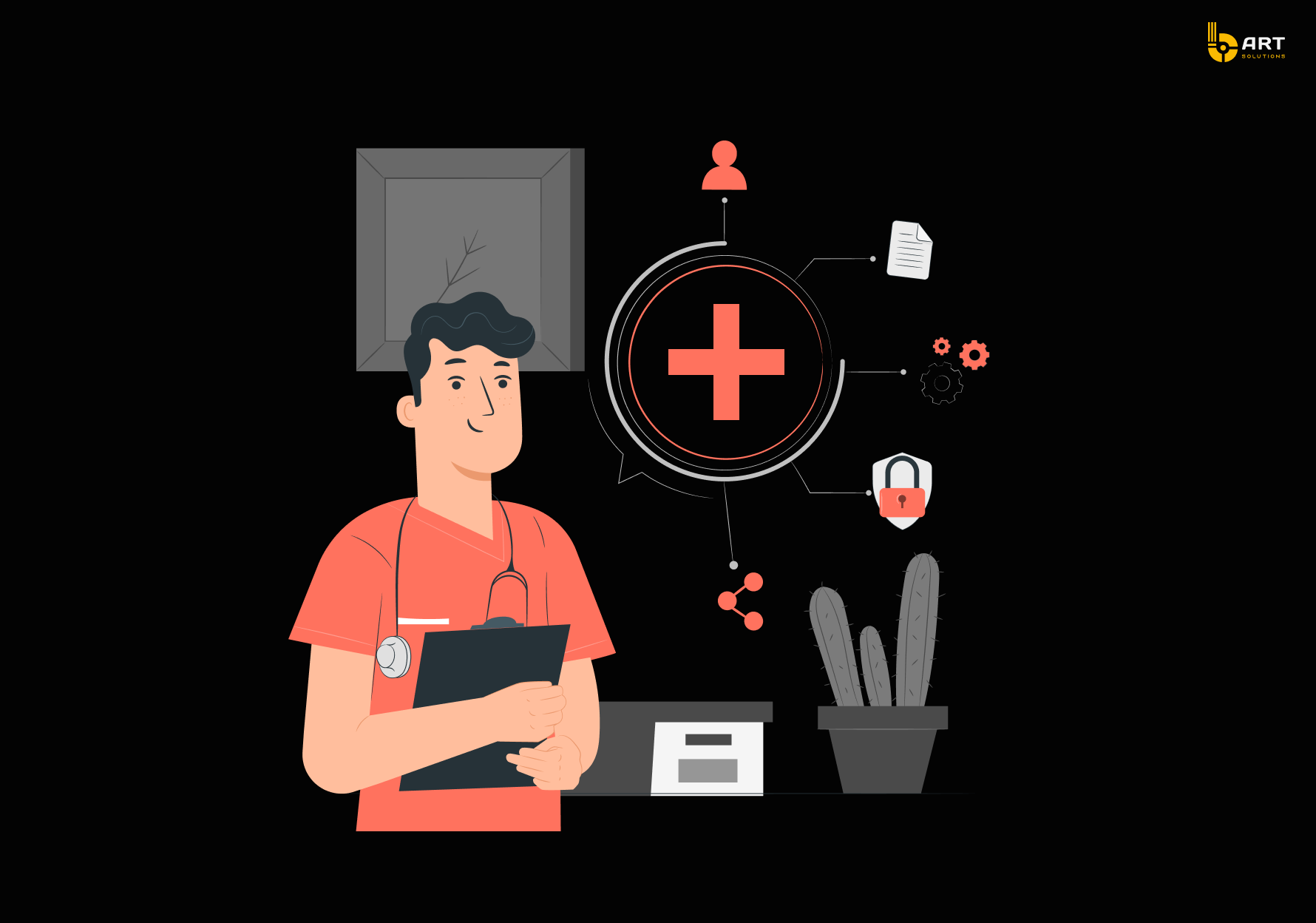Large Language Models (LLMs) can summarize patient records, flag potential diagnosis gaps, and identify patterns in symptoms that may be overlooked. According to the National Bureau of Economic Research (NBER), AI, including LLMs, could save the U.S. healthcare industry between $200 billion and $360 billion annually, thanks to improved efficiency and reduced errors.

What can LLMs improve in healthcare?
While LLMs are still relatively new to the healthcare field, their impact is already noticeable across various areas. Let’s explore the key areas where LLMs are driving innovation and delivering real-world benefits.
Data-driven decision making
LLMs have the unique ability to analyze large datasets in healthcare, making it easier for clinicians to make informed decisions. For example, at Mount Sinai Health System, researchers used LLMs to analyze patient data to predict heart disease risk factors. By identifying patterns in patient histories and genetic data, the AI model was able to flag individuals at higher risk for cardiovascular conditions earlier than traditional methods would allow, leading to preventive interventions. LLMs like IBM Watson have been used to review and summarize research papers for oncologists, helping them keep up with the latest cancer treatment options and apply them in clinical settings.
Streamlining administrative tasks
The automation of administrative tasks is another area where LLMs are making an impact. Mayo Clinic has implemented AI to automate parts of the medical coding process, reducing time spent on coding and improving accuracy. By using LLMs to process clinical documentation and extract relevant billing codes, the hospital has seen significant reductions in administrative workloads. Similarly, Beth Israel Deaconess Medical Center is leveraging LLMs to assist with routine documentation, allowing doctors to dictate notes, which are then transcribed and structured by the AI model, enabling physicians to focus on patient care.
Improving diagnostics and care
In diagnostics, LLMs are being used to enhance decision support tools. For instance, Google Health has developed an AI model capable of detecting breast cancer in mammograms more accurately than human radiologists, reducing false positives and missed diagnoses. The AI works by analyzing thousands of images and comparing them to historical data, providing clinicians with a second opinion. Furthermore, LLMs are used in personalized medicine, where they can assist in tailoring treatment plans for patients based on genetic data and medical history. For example, AI-driven systems at MD Anderson Cancer Center help doctors select the most effective treatment regimens for cancer patients by analyzing vast clinical datasets, improving treatment accuracy.
Key parameters for evaluating LLM performance in healthcare
When deploying LLMs in healthcare, ensuring their effectiveness goes beyond basic implementation. It’s important to evaluate their performance across several dimensions to guarantee safety, accuracy, and reliability.

By evaluating LLMs against these parameters, healthcare providers can ensure that the integrated systems are accurate, robust, factual, and comprehensive.
Leveraging Azure AI for healthcare-specific applications
Azure AI stands out as one of the most powerful platforms for healthcare due to its advanced AI capabilities, seamless integration with existing healthcare systems, and strict compliance with industry regulations. It offers specialized tools tailored to the healthcare sector’s unique needs, such as handling sensitive patient data securely, ensuring HIPAA and GDPR compliance, and delivering actionable insights through natural language processing (NLP) and machine learning models. Its flexibility and scalability make it suitable for a wide range of healthcare providers, from small clinics to large hospital networks.
According to Gartner, healthcare organizations utilizing AI platforms like Azure have experienced a 15-30% improvement in efficiency, as well as better clinical outcomes through data-driven decision-making.
Integration with healthcare systems
One of the standout features of Azure AI is its flawless integration with existing healthcare systems, including EHRs and medical devices. Azure allows healthcare providers to integrate LLMs directly into their workflows, ensuring smooth data flow and interoperability across systems. Whether it’s integrating with popular EHR platforms or connecting medical devices for real-time patient monitoring, Azure ensures that all critical patient data is readily accessible and actionable.
Security and compliance
Azure AI is designed to meet the strictest security standards required in healthcare, ensuring that sensitive data remains secure. It complies with key regulations, including HIPAA and GDPR, making it a trusted platform for handling patient information.

Azure’s Compliance Manager offers a centralized tool to help healthcare providers manage and track their compliance with global regulations. It provides pre-built templates for industry standards like HIPAA and GDPR, automates compliance tasks, and continuously monitors risks.
Azure’s cognitive services for healthcare
Azure’s Cognitive Services offer cutting-edge tools that enable healthcare providers to extract valuable insights from complex medical data. One of the most notable services is Text Analytics for Health, which uses natural language processing (NLP) to interpret unstructured data such as medical notes and clinical reports. This service can extract key information, such as medical conditions, treatments, and medications, from a large array of healthcare documents, helping clinicians make better-informed decisions.
Another notable service is the Azure Health Bot, which helps in managing patient interactions. This AI-powered chatbot can handle different tasks, from answering patient queries to scheduling appointments and offering basic diagnostic guidance, freeing up valuable time for doctors.
Where and when to apply LLMs in healthcare
Whether it’s extracting critical information from medical records or speeding up drug discovery, LLMs offer tailored solutions to some of the biggest challenges in healthcare. Applying these AI systems in the right time and contexts — such as during diagnostic processes, data integration, or administrative automation — can help healthcare providers improve efficiency and accuracy.

Use Cases
Clinical support systems
LLMs empower clinical decision support systems by rapidly processing medical literature, patient data, and clinical guidelines to assist physicians in real-time. For example, Google’s Med-PaLM 2, an LLM trained specifically on medical data, is helping doctors answer complex clinical questions by drawing insights from thousands of medical publications. By providing relevant diagnoses and treatment options, LLMs enable physicians to make more informed decisions, reducing the time spent on research and improving patient care outcomes.
Virtual assistants
AI-powered virtual health assistants are becoming essential for patient triage and engagement. In hospitals like Beth Israel Deaconess Medical Center, virtual assistants are used to interact with patients, provide symptom assessments, and facilitate appointment bookings. These LLM-driven systems help reduce the administrative burden on healthcare staff, allowing them to focus on more important tasks, while patients receive timely and accurate information.
Medical research and drug discovery
LLMs are revolutionizing the pace at which new treatments are discovered. For instance, Insilico Medicine uses LLMs to speed up drug discovery by analyzing molecular data and clinical trials to identify promising drug candidates. This technology has enabled researchers to shorten the drug development timeline by rapidly identifying compounds for diseases like cancer and age-related conditions. The use of LLMs in research is also helping reduce costs associated with lengthy trial phases.
Timing: When to implement LLM solutions
Introducing LLMs in healthcare is most effective when addressing challenges, such as scaling patient interactions, optimizing workflows, or integrating complex data. Implementing LLMs during these periods guarantees they solve immediate needs while increasing efficiency across all systems.
- Scaling patient interactions: When patient demand increases, such as during peak seasons or health crises, virtual assistants powered by LLMs can help manage routine inquiries.
- Optimizing operational processes: Healthcare organizations seeking to optimize tasks like medical documentation, coding, and billing should consider LLMs during times of organizational growth or process reengineering.
- Data integration projects: During data integration efforts, such as healthcare system mergers or when implementing new electronic health record (EHR) systems, LLMs can help ensure seamless data migration and accurate patient records.
Practical considerations for implementation
Scalability and customization
When a large amount of data is collected — from EHRs to real-time data from medical devices — Azure AI’s scalable cloud infrastructure ensures that these systems can handle the expanding data load without compromising performance. Whether managing a small clinic’s data or a large hospital’s complex systems, Azure allows for seamless scalability by adjusting storage, processing power, and machine learning capacity as needed.
Cost efficiency
Cost is definitely a significant factor when adopting new technologies. Azure AI offers a pay-as-you-go model, making LLMs and AI-powered solutions more accessible, especially for small healthcare startups or practices with limited budgets. This model allows businesses to only pay for the resources they use, ensuring cost efficiency while maintaining the flexibility to scale as the business grows. Azure’s pricing model is especially beneficial for startups that need access to advanced LLM technologies without the upfront investment typically required for on-premise solutions.
Collaboration with experts
Implementation of LLM solutions in healthcare requires more than just access to advanced technology; it also involves close collaboration with both AI specialists and healthcare domain experts. By working with professionals who understand the nuances of medical data and the specific challenges of healthcare, businesses avoid common pitfalls such as data bias, improper model training, or compliance issues.
Partnering with an experienced team like bART Solutions, which has certified Azure AI engineers and expertise in healthcare software development, can ensure a smooth transition when adopting LLM technologies. Collaborating with us helps healthcare providers fine-tune their models for clinical accuracy and ensures compliance with healthcare regulations.
Conclusion
LLMs offer immense potential for improving different aspects of healthcare, from enhancing clinical decision-making and streamlining administrative tasks to accelerating medical research and drug discovery. When implemented strategically — during periods of data integration, scaling patient interactions, or optimizing operations — LLMs can bring substantial improvements to both patient care and operational efficiency. By leveraging scalable platforms like Azure AI and collaborating with experienced AI and healthcare experts like bART Solutions, healthcare providers can ensure that LLM solutions are deployed effectively, securely, and in compliance with key regulations, maximizing benefits for long-term success.
